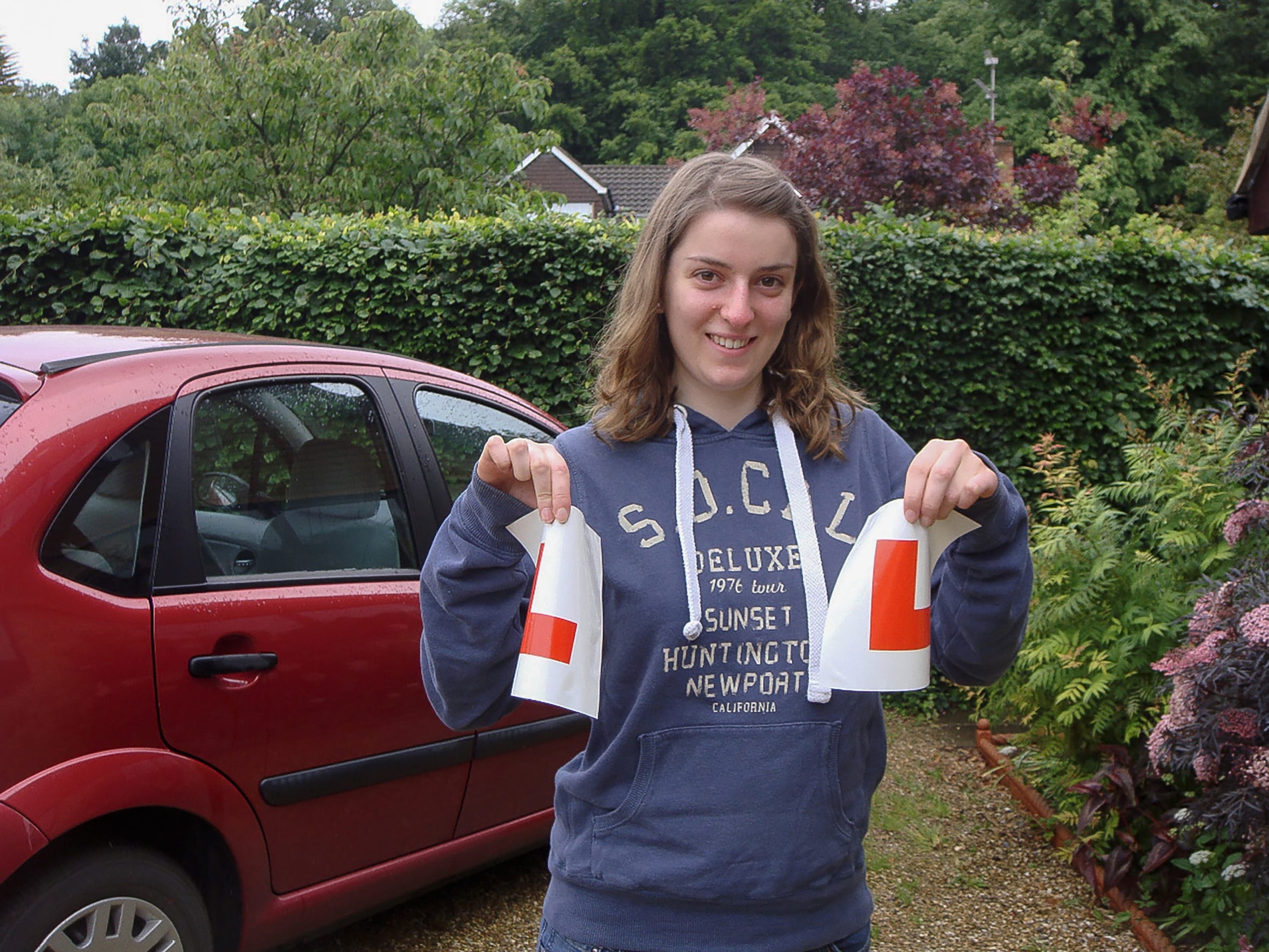Adolescents and transition to adult life
Advice on adolescents and transition to adult life when living with Tuberous Sclerosis Complex
Being an adolescent and growing into a life of adulthood can be a daunting and stressful time for anyone.
For people living with Tuberous Sclerosis Complex (TSC), the experience of transitioning to adolescence and then onto adulthood can have even greater complexity than for other people.
Regardless of the situation, if you are an adolescent living with TSC (or someone close to you is), the Tuberous Sclerosis Association (TSA) is here for you.
Here, we provide an overview of some important things to remember or keep in mind when growing up and living with TSC.
How TSC might affect adolescents
There are a number of common features of TSC which might present themselves from adolescence onwards. Some of the most common are listed here. However, if a young person lives with TSC it is not a certainty that they will present with any of these, with each TSC story being unique.
You might see changes in a child’s behaviour as they begin to get older and become a teenager and young adult. They can include irritability, sleeping problems, anxiety and other challenging behaviour.
It is common for adolescents and young adults with TSC to feel anxious or stressed. This could be from every day concerns (such as school or work issues) or more specific, such as concerns about TSC itself. It is important for everyone experiencing anxiety and stress to seek help and support – this could be from a family member, friend, healthcare professional or even the Tuberous Sclerosis Association (TSA).
Although it is common for epilepsy to be diagnosed in people living with TSC when they are children, an epilepsy diagnosis is not uncommon in adolescents and adults who live with TSC. There are many different kinds of seizures related to epilepsy, with clinicians being able to provide more specific information depending on individual circumstances.
It is not always possible to control all of the seizures that a person living with TSC and also epilepsy has, with the target often being management of the epilepsy in a way that is most beneficial to the individual depending on their circumstances and lifestyles.
More information on epilepsy in TSC can be found here.
Kidney problems are very common in people living with TSC, with around eight in every 10 people living with TSC developing kidney problems. Kidney problems are not usually detected in early childhood but become more common as individuals get older.
Although many TSC-related kidney problems can cause no significant problems, some issues can have an effect on the proper functioning of the kidney. The most common kidney issue in people living with TSC is the development of small growths on the kidneys, called ‘renal angiomyolipomas’ (or ‘AMLs’). Depending on their size and position on the kidney, AMLs can affect kidney function and regular monitoring is therefore very important.
More information on kidney problems in TSC can be found here.
People living with TSC can have complications from the condition in the lungs. The most common problem is ‘lymphangioleiomyomatosis (or ‘LAM’). LAM develops most commonly between adolescence and middle-age, with the condition being much more common in women living with TSC compared to men, with around 3 in every 10 women living with TSC also developing LAM.
The impact and severity of LAM varies significantly amongst individuals with the condition, with problems ranging from shortness of breath and coughing to chest pain or a collapsed lung. Regular screening of the lungs and lung function tests are strongly recommended in people living with TSC and also LAM.
More information on lung problems in TSC can be found here.
Depending on how much impact TSC has on an individual, growing up can sometimes include more things to think about, such as:
Moving on to secondary school or college
The move from primary to secondary education, or secondary to college, is an exciting and sometimes daunting time for all children. For children living with TSC who also have additional issues (such as learning disabilities, autism or other special educational needs (SEN), these feels can be charged even higher.
Further information on education requirements and ensuring your child is getting the care that they deserve in school is available in our education section here. However, there are a number of things that family members or loved ones can do to help with the move to a new school more broadly, such as:
- Get a map and pictures of the new school. Sit down together and go through them, to become familiar with the layout and what the building looks like
- Write a checklist of things to pack and prepare (such as lunch, pencils etc.) so nothing is left to chance
- Ask the school for a timetable in advance of the first day, so you can be familiar in good time of what the expect
- Check to see if any friends are going to the same school, to make the transition easier
- (If possible) visit the school once or a number of times, to feel at ease in the environment – you could take pictures during the visit if allowed to do so
- Start to plan the journeys that will take place, such as a bus or car journey
- Ask the school to see what food options will be available, to decide if a packed lunch would be more suitable
Accessing benefits and financial assistance
The benefits and financial assistance available to an individual and their family/carers will change during the transition to adulthood. For example:
- A parent carer, can claim benefits on behalf of the child only until they reach the age of 16
- From the September after a child’s 16th birthday, parent carers will be able to get payments for the child as a dependant only if the child is in full-time education or on an approved training course
- A child aged 16 might be eligible for certain benefits in their own right
- Household income could be impacted, as certain benefits will reduce if a child is no longer classed as a dependant
- Disability Living Allowance (DLA) is available to parents or carers of a child with a disability only until the child turns age 16
- From aged 16 onwards, the child must apply for Personal Independence Payment (PIP) if they would like to claim a disability benefit
More information on accessing benefits and financial aid can be found here.
Transitioning from child to adult health and social care
Until the age of 18, services for children and young people with long-term health conditions are provided by child health and social care services. Once a person is 18, their health and social care needs are usually provided by adult services.
There can be very clear differences between children health and social care services compared to those for adults. This means that the move to adult services can be potentially distressing or daunting, though the change is often spurred by the individual’s desire to be more independent and have greater control over their own health and social circumstances.
As a child gets older and becomes an adolescent, a transition with adult services will begin to help manage the change to adult services. This transition usually begins at around 13 to 14 years old, up to around the ages of 16 to 18.
Transitioning to adult services is an ongoing and potentially stressful or difficult time, tailored to individuals and their needs
Moving from child social and health services to those for adults will mean meeting and get used to a different team. This can be unsettling for the individuals involved in the transition, with professionals that they are comfortable with now changing.
It is important that the individual, their family/loved ones and carers all understand the transition process, so that everyone feels supported and confident of the changes to come.
As part of the move to the new team, ensure that a detailed discussion and exchange of information takes place between the child support team and the new adult support team. This can make the move to the new service much smoother. The individual going through the transition should not be officially discharged from the children’s service until their care has been transferred to the adult health services.
As a child gets older, they or their family or carer may ask their local authority for a transition assessment. It is typical for an assessment to be made as a child approaches 18 in-line with the upcoming transition into adult health and social services.
Chapter 16 of the statutory guidance on the Care Act 2014 sets out the requirements of a transition assessment:
The transition assessment should support the young person and their family to plan for the future, by providing them with information about what they can expect. All transition assessments must include an assessment of:
- Current needs for care and support and how these impact on wellbeing
- Whether the child or carer is likely to have needs for care and support after the child in question becomes 18
- If so, what those needs are likely to be, and which are likely to be eligible needs
- The outcomes the young person or carer wishes to achieve in day-to-day life and how care and support (and other matters) can contribute to achieving them
The assessment will help the young person and their family/carer plan ahead.
The local authority has a duty to do this assessment. If a local authority denies the request it must explain in writing why it has reached that decision.
Download resources
Useful links
Related pages
Make a one off or regular donation
£10 Can allow us to send a welcome pack to a family who has just received a life-changing TSC diagnosis, ensuring that they do not go through this time alone.
£25 Can help us develop materials that are included in our support services, flagship events or campaigns.
£50 Can provide laboratory equipment for a day’s research into the causes, symptoms, management or treatment of TSC.
To provide help for today and a cure for tomorrow







